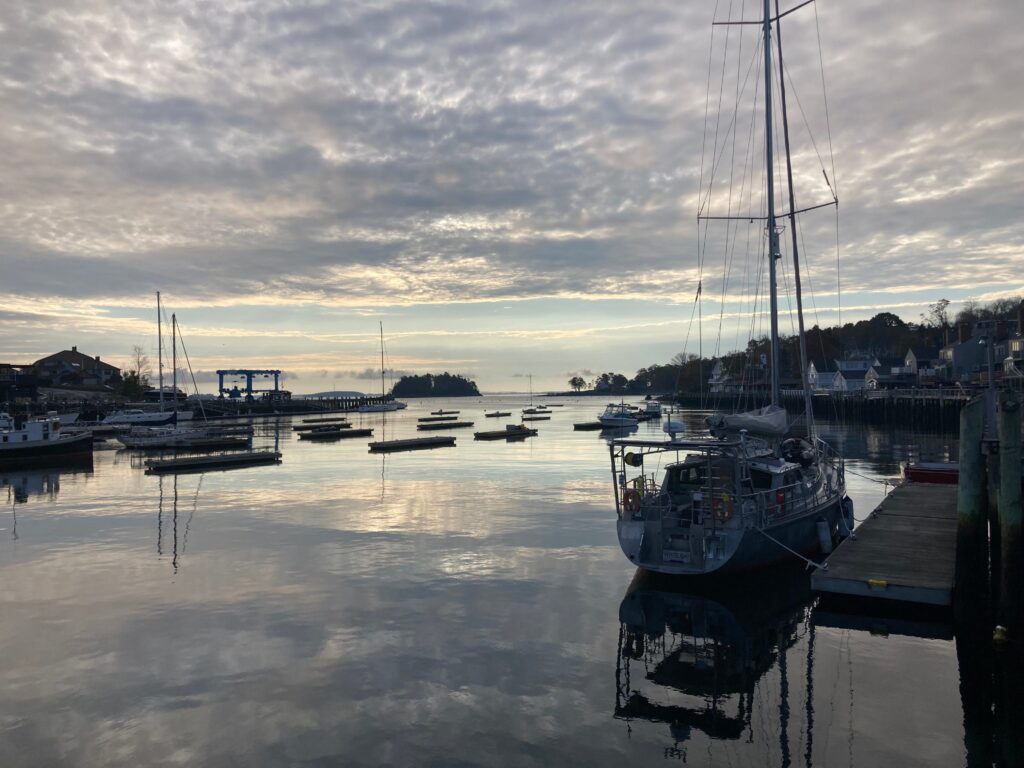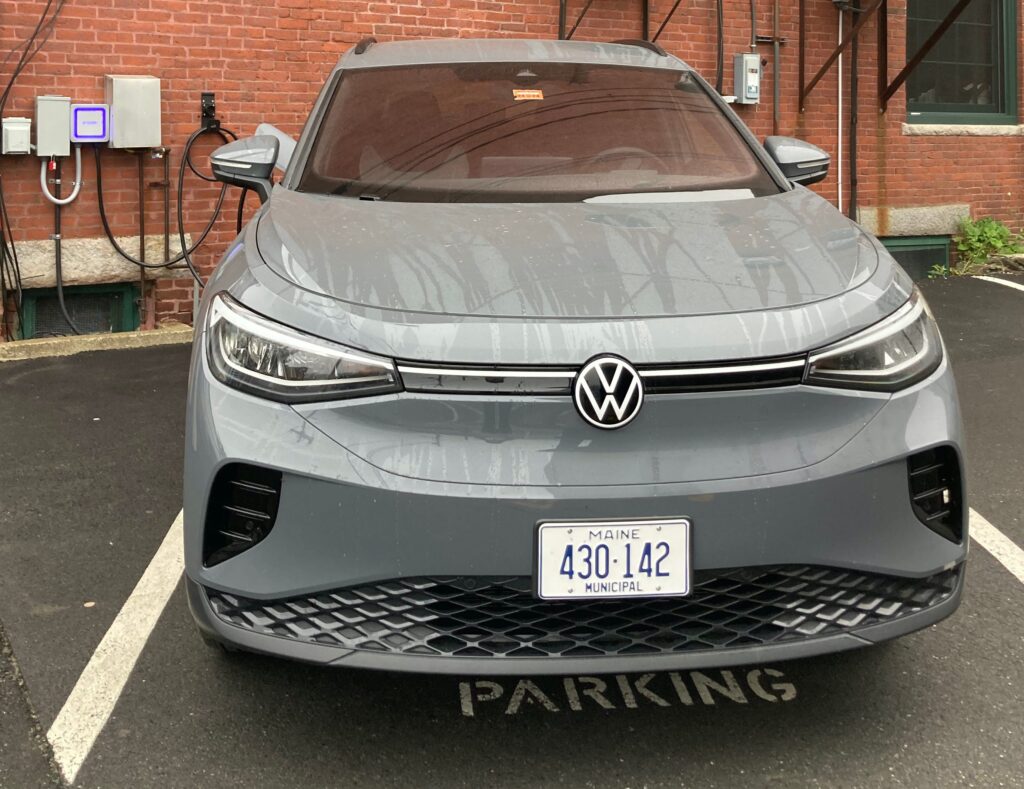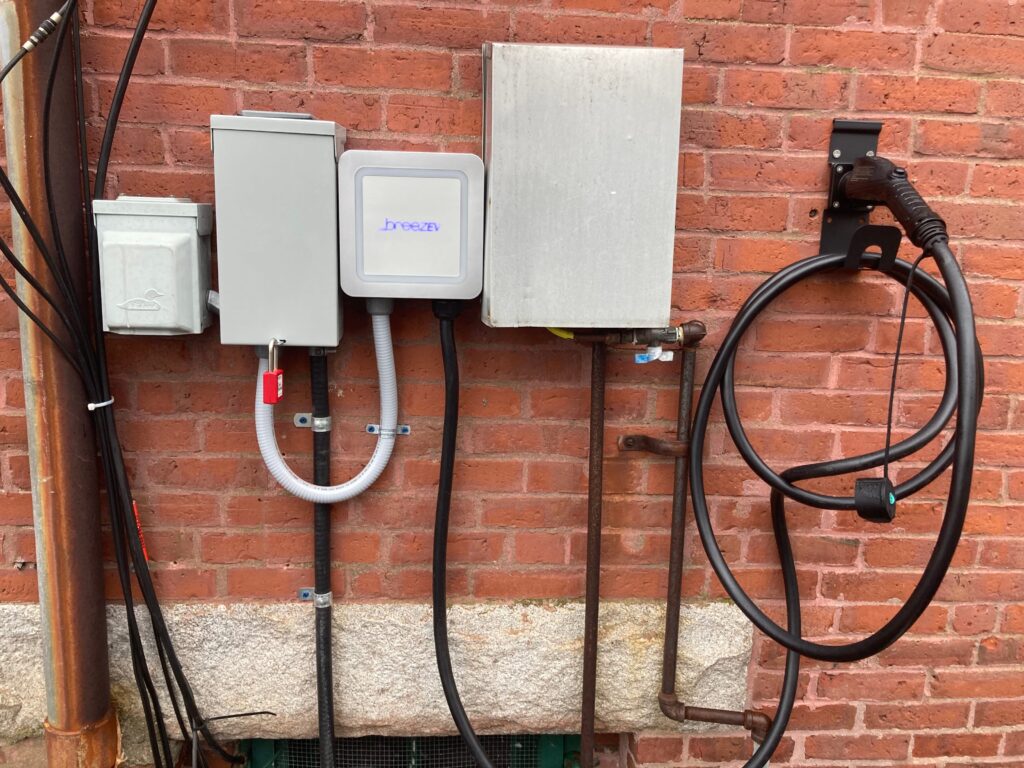What Did You Do Once You Knew the Climate Was Changing?
Nov 14, 2023

There’re two things Mainers don’t like: change and the way things are.
Maybe you’ve heard that saying before. We think it’s a perfect snapshot of the feelings here in Camden this November 2023.
Some residents don’t want the structure and ownership of Maine’s energy utilities to change. About an equal number of Camden voters want changes in the ownership model for our energy utility. (Camden results for Question 3: 1,177 No [53%] ; 1,028 Yes [47%].)
Are we divided, or are we one community—united by our love of Camden—with differing ideas about pathways forward? We believe we’re more united by what we value and treasure than divided.
For instance, we can probably all agree that we want a future with less expensive and more reliable energy.
How we get there—given the dwindling planetary fossil fuel reserves and the irrefutable evidence that burning things for power at the current level makes our planet uninhabitable (read the IPCC synthesis report here)—is an open question.
The sun will shine forever—it’s reliable—and solar panels are affordable. Chances are the wind will continue to blow, too. And we know how to use wind to power our electrical grid.
We can debate the specifics of the energy transition—and we will—and at the same time celebrate that we have many functional, affordable, and available options for reliable, clean energy.
The energy transition could be wondrous for our town. Camden’s streets could be free of the noise of internal combustion engines and our air free of fossil fuel fumes. (Who loves the smell of a diesel truck idling by French and Brawn?) Each house could become its own mini power plant, with a local abundance of energy sold back to the grid.
We are fortunate to have options for Camden—not just for reducing green house gas emissions, but also regarding our public landing and waterfront, our rivers and their watersheds, our beloved Ragged Mountain, our parks, and our schools. As committed citizens we explore options, listen to each other, and eventually arrive at a consensus for our future.
It’s a scary time. We can’t know that future. But we do know that tomorrow’s Camden will not be yesterday’s Camden. There will be tradeoffs. And some of them will be painful. (How could they not be? We Mainers don’t like change and we don’t like the way things are. Ouch.)
Perhaps we can also agree on a goal to find mutually satisfying solutions. Fairness, justice, and collaboration are values Camden residents share. How we get to solutions matters.
Our aim at CamdenCAN is to create forums where Camden voices are heard. This fall and winter we’re raising the decibel level of climate talk in town—read more about those happenings below.
Make Your Priorities Known—Camden Climate Survey
What are you most concerned about regarding climate change in Camden? We want to hear from you—we’re looking for input from each and every Camden resident. Take the 4-minute survey by following this link. And forward this newsletter to others so they can be heard, too. One of the most important aspects of a just transition is that ALL Camden residents, not just those who are reading this, have their input. If you can’t log in to the survey, respond to this email and we’ll get a hardcopy version to you.
Glean Insights Into Neighboring Towns’ Climate Priorities
This Thursday, November 16 at 630 pm at the French Conference Room representatives from neighboring towns will talk about how they began talking about climate, assessing priorities, and taking action. We’ll hear from Belfast, Isleboro, Vinalhaven, Rockport, and Rockland. We’ve created this panel as a way to begin thinking about a Camden Climate Action Plan. You can link to the webinar here if you want to attend virtually or read more about the panel here.
Future Panels: Update On Camden Climate Work and 2024 Series
On December 7 at 630 pm at the Camden Public Library we’ll host the second Camden Talks Climate panel, this one exploring Camden’s climate work to date. We’ll hear first from the folks at the Watershed School who instigated early climate work. We’ll also hear from ex-Energy Committee members, town staff, and a Camden resident whose household has made the move to green energy.
In early January 2024 we’ll host a climate expert from UMaine on best practices for climate mitigation. Later in January and February we’ll convene workshops on specific challenges faced by Camden, including options for the Public Landing.
CamdenCAN Calendar
11/16 1-230 PM at the Camden Public Library. Join us for our biweekly Climate Conversation Circles—a facilitated, open, and ongoing space to explore eco-anxiety, share resources, and meet neighbors interested in finding ways to grapple with the reality of our warming planet. No need to have attended other sessions. FMI see here. (This is the last of these until they reconvene January 4, 2024.)
11/16, 630-830 pm (Thursday). French Conference Room/Camden Town Offices, Camden Talks Climate: “Camden’s Neighbors’ on Climate Action: Tales of Hope and Activism from Belfast to Vinalhaven (and Elsewhere!)” Panelists include Islesboro’s Shey Conover; Vinalhaven’s Gabe McPhail; Belfast’s Jon Beal; Rockland’s Julie Hashem; Rockport’s Bill Bow. Moderator: Esperanza Stancioff. Join meeting with this link. (Sponsored by CamdenCAN and the Town of Camden.)
12/7, 630-800 pm (Thursday). Camden Public Library, Camden Talks Climate panel presentation, “Where Does Camden Stand on Climate Action?”
Other Local Climate News and Happenings
Did you know the Town of Camden has three EVs? That’s right. Our fire chief has a really cool F150 EV, our school district has an electric school bus (it’s the one with the bold blue stripes—keep an eye out for it), and our code officer drives a new VW EV. The latter two were obtained with assistance from the Community Resilience Partnership, part of Maine Won’t Wait—our state’s climate plan. (Apparently the school kids love it when it’s their day to ride on the Ebus.)


The EV used by Camden’s code enforcement office, and its charging station.
Knox County Regional Airport Solar Array. Commissioner Ed Glaser reported in the 11/8 selectboard meeting that the airport is moving forward to install a robust solar array, including the first of its kind with E-chargers for E-planes. There will also be a large bank of EV chargers. The array was due to be running by December.
December 13, 5-7 pm, Midcoast Climate, Energy, and Green Building Happy Hour—at Lucky Betty’s in Camden! See the link in Facebook.
Watershed School Window Dressers Build. This was a huge success—kudos and thanks to the school leadership for hosting, to all the local volunteers, and especially to the homeowners who have purchased inserts so they can reduce their heating needs. Every reduction in the burning of fossil fuels matters. Read the Bangor Daily’s roundup of the build here.
The Debate on Seawalls/Bulkheads. Many experts have made it clear that building seawalls and bulkheads is detrimental to actually preserving shorefront property. Our state geologist has many lessons on this. Explore them here. Yes, it’s a complicated topic.
The absence of hard shoreline armor such as bulkheads, seawalls, and riprap allows the land to contribute sediment and adapt to sea-level rise and climate changes in a dynamic system.—Lisa Kaufman, director of programs at the Northwest Straits Foundation
Seeds of Hope from Farther Afield
Climate resilience means taking care of our planetary well-being and our emotional well-being. One of our readers suggested listening to Krista Tippett’s recent conversation with Christiana Figueres (one of the leaders behind the Paris Climate Agreement) to raise your spirits. Have a listen here.
And we’d like to pass along a wonderful conversation Rebecca Solnit had with the folks at the Climate One podcast. It’s titled “On Why It’s Not Too Late”—have a listen here.
Concluding Thoughts
Here in Camden the rockbound coast submerges deeply—over 300 feet in West Penobscot Bay—and the Atlantic Ocean pours in, twice a day, on tides governed by a distant moon. That sea is rising—and none of us knows precisely how high it will go nor how quickly. Yes we can measure, and collect data. And yet we still will not have a precise view of the future. Our inability to be precise doesn’t mitigate our need to respond. (Explore one version of sea level rise predictions at the Maine Geologic Survey map here.)
Camden’s future is our future. It’s up to us to educate ourselves about the climate crisis, talk about energy choices, talk about the future we want, and act toward that future. By doing so we’ll each have an answer when our children ask, “And what did you do once you knew the climate was changing?”
Will Camden choose to push hard for the elimination of green house gases (and move to green energy), admit that the waters are rising, that rainstorms will continue to break records, and make plans accordingly (among a short list of climate response possibilities)? Or will we ignore the reality of climate change and carry on with status quo?
And it’s not just how we respond, it’s when. We are living through a climate emergency. There is not a part of our Camden lives that is not impacted.
Camden’s choices matter.
What will you choose?
Post Script
We’ll leave you with this quote from the most recent IPCC report:
Climate change is a threat to human well-being and planetary health (very high confidence). There is a rapidly closing window of opportunity to secure a liveable and sustainable future for all (very high confidence)… The choices and actions implemented in this decade will have impacts now and for thousands of years (high confidence).
—page 24 AR6 Synthesis Report, 2023
